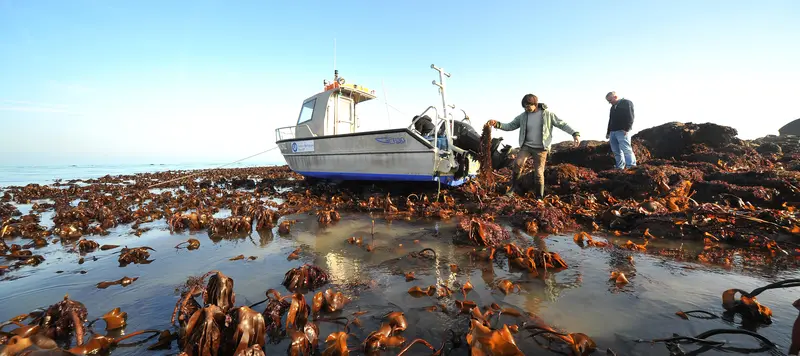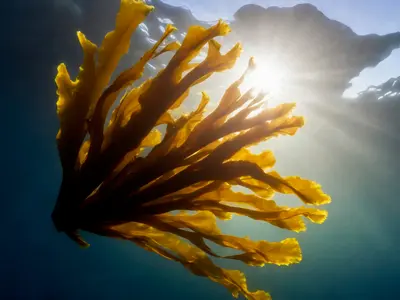research
Research conducted at SBR spans the full continuum of biological organization—from genes and molecules to marine organisms, populations, and the functioning of entire marine ecosystems. We promote an interdisciplinary research framework, encompassing fundamental studies of cellular, molecular, and evolutionary processes in marine organisms; the discovery and characterization of bioactive marine metabolites (“blue bioactives”) with potential therapeutic or biotechnological applications; and the analysis of environmental change and its impacts on biodiversity, organismal physiology, population dynamics, and ecosystem structure and function.
Our research teams combine mechanistic experimentation with integrative and systems-level approaches, leveraging advanced methodologies at the forefront of modern biology (e.g., multi-omics, systems biology), enriched with analytical tools and concepts from mathematics, chemistry, computer science, and oceanography.

Laboratory of Integrative Biology of Marine Models
équipesTeam BABIM - BActerial BIoconversion of Macroalgae
Team PCF - Physiology and Cell Fate
Team AG - Algal Genetics
Team TCCD - Translation, Cell Cycle and Development
Tide Associated Rhythms of Brown Algae
Team BAG - Brown Algal Glycans
Team IMMAR - Molecular Interactions with Red Algal Matrices
Team ABIE - Algal Biology and Interactions with the Environnement

Adaptation and Diversity in the Marine Environment
équipesTeam ECOPHY - Ecophysiology of Marine Invertebrates
Team ECOMAP - Ecology of Marine Plankton
Team DiSEEM - Dispersal, Speciation and Evolution of Marine Species
Team EDYMAR - Ecogeochemistry and DYnamics of MARine systems
Transversal Axis
Cell Fate
Cell fate involves the transition of a cell state to another, a transition that can be explored both in the prokaryote and eukaryote world. The fate of a cell is impacted by external cues provided by surrounding tissues or direct environment in case of unicellular organisms but cell fate also integrates a precise genetic program that comes from the inside of the cell. At the Station Biologique de Roscoff (SBR), we are interested in a great diversity of cells and organisms (marine bacteria, protists, marine opisthokonts (mainly metazoans), algae and also human cells) but a certain number of researchers have in common to address mechanistic questions related to the behavior of cells in a given context. We have gathered this scientific task force within a specific working group named Cell Fate. Its aim is to share expertise and knowledge concerning functional approaches in cell biology. These approaches include microscopy at the cellular level or in a whole organism, gene editing methods, multi-omics approaches, chemobiology tools, electrophysiology, microinjection and microfluidics.
Several scientific activities are programmed to bring together the scientists belonging to the working group: a journal club is organized monthly, a workshop is scheduled every year and researchers coming from other institutes are regularly invited to give a seminar.
